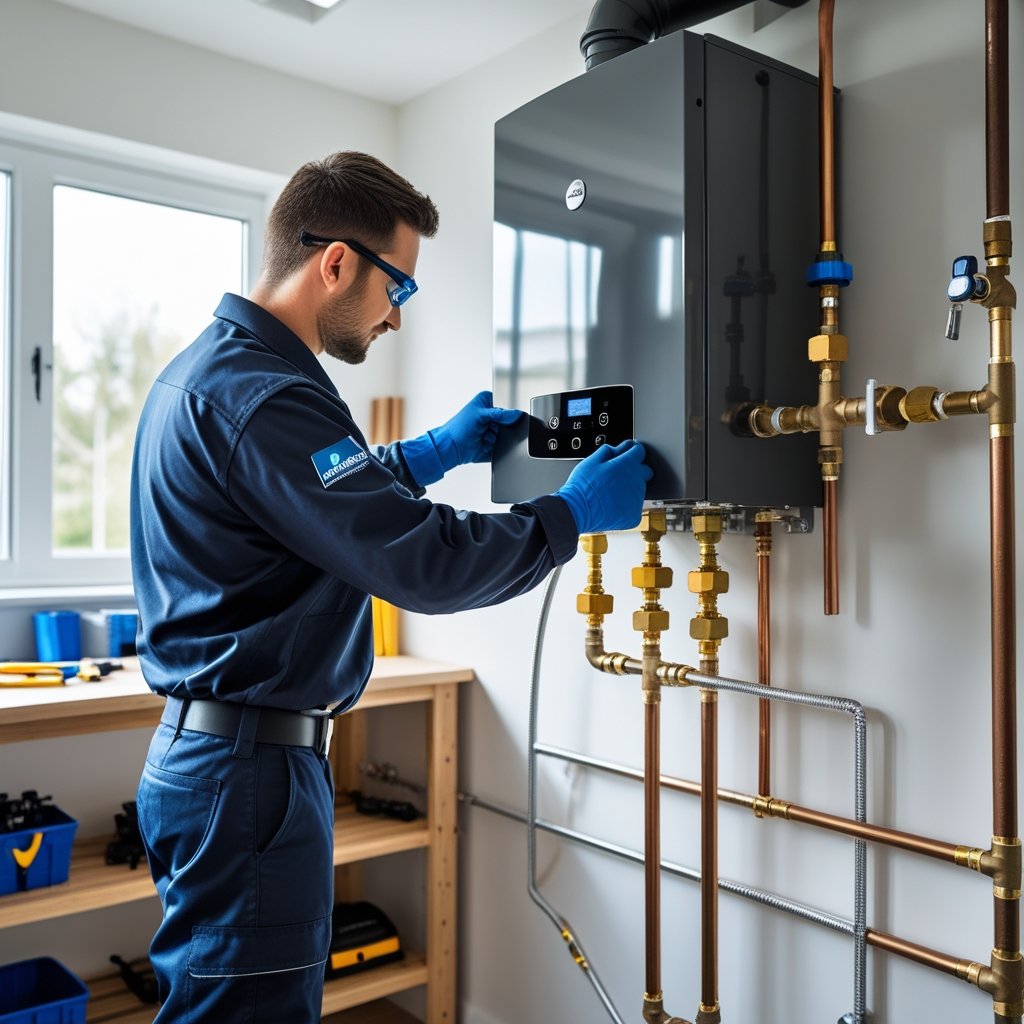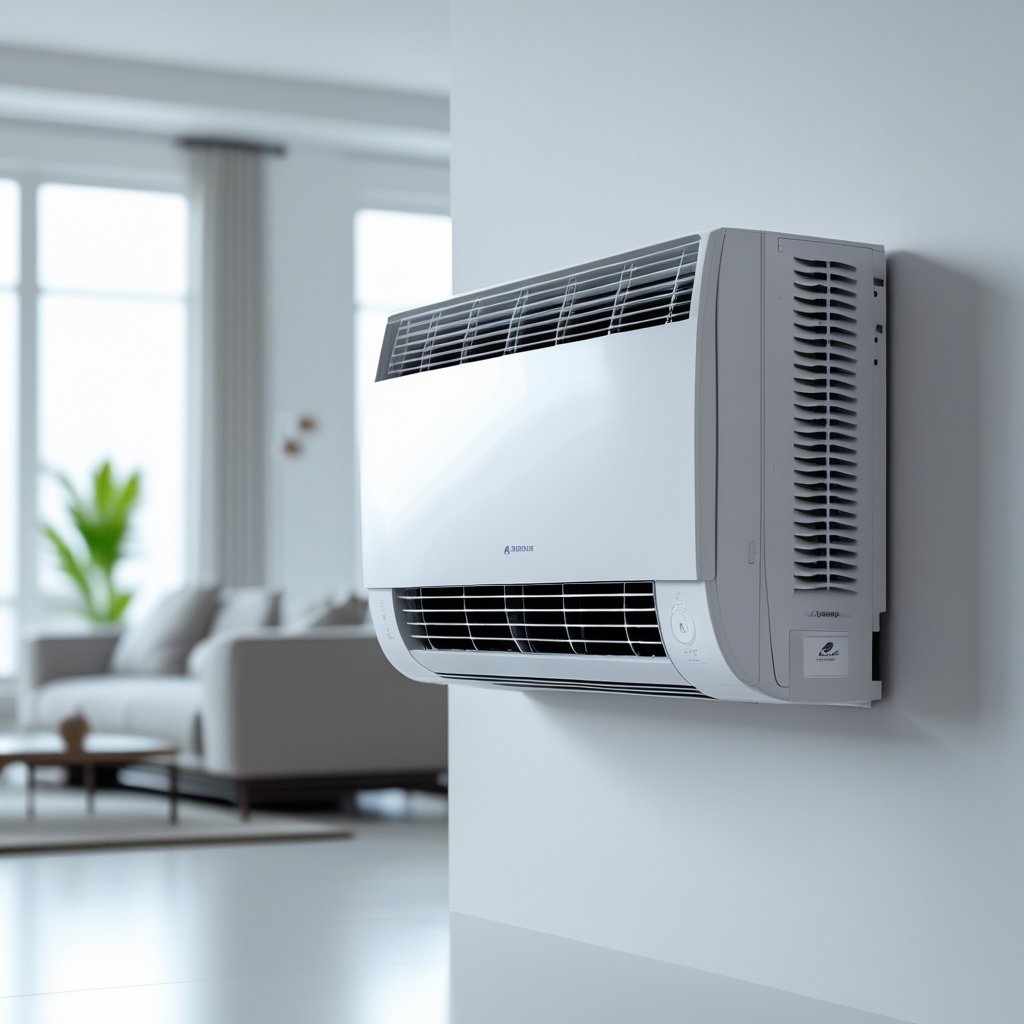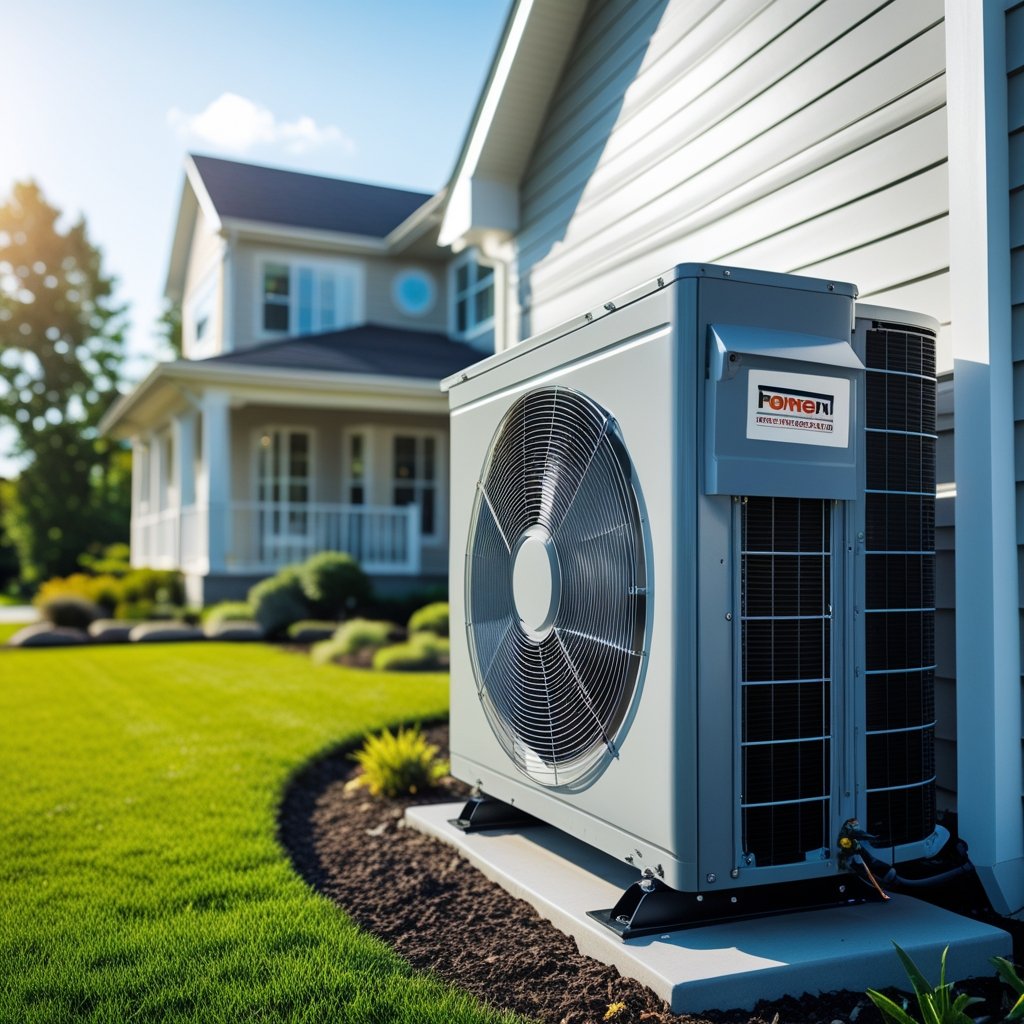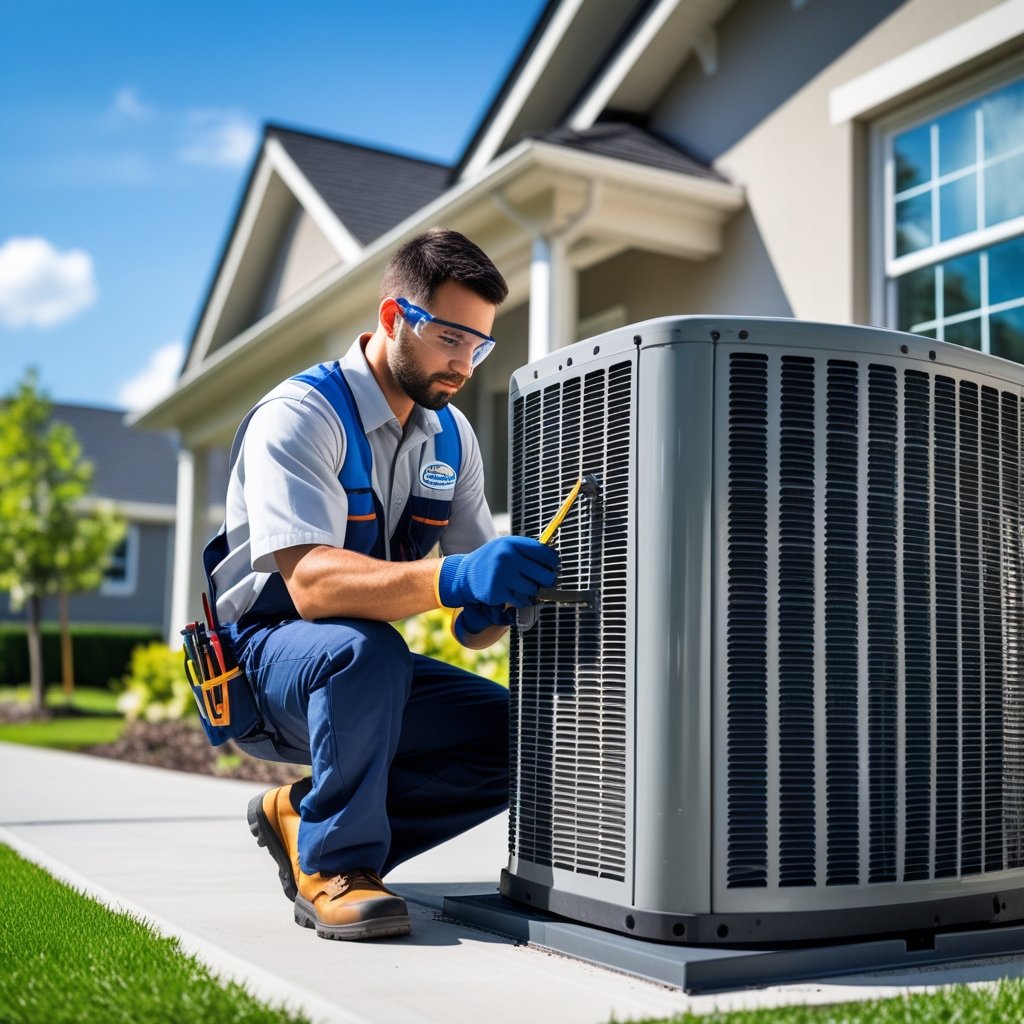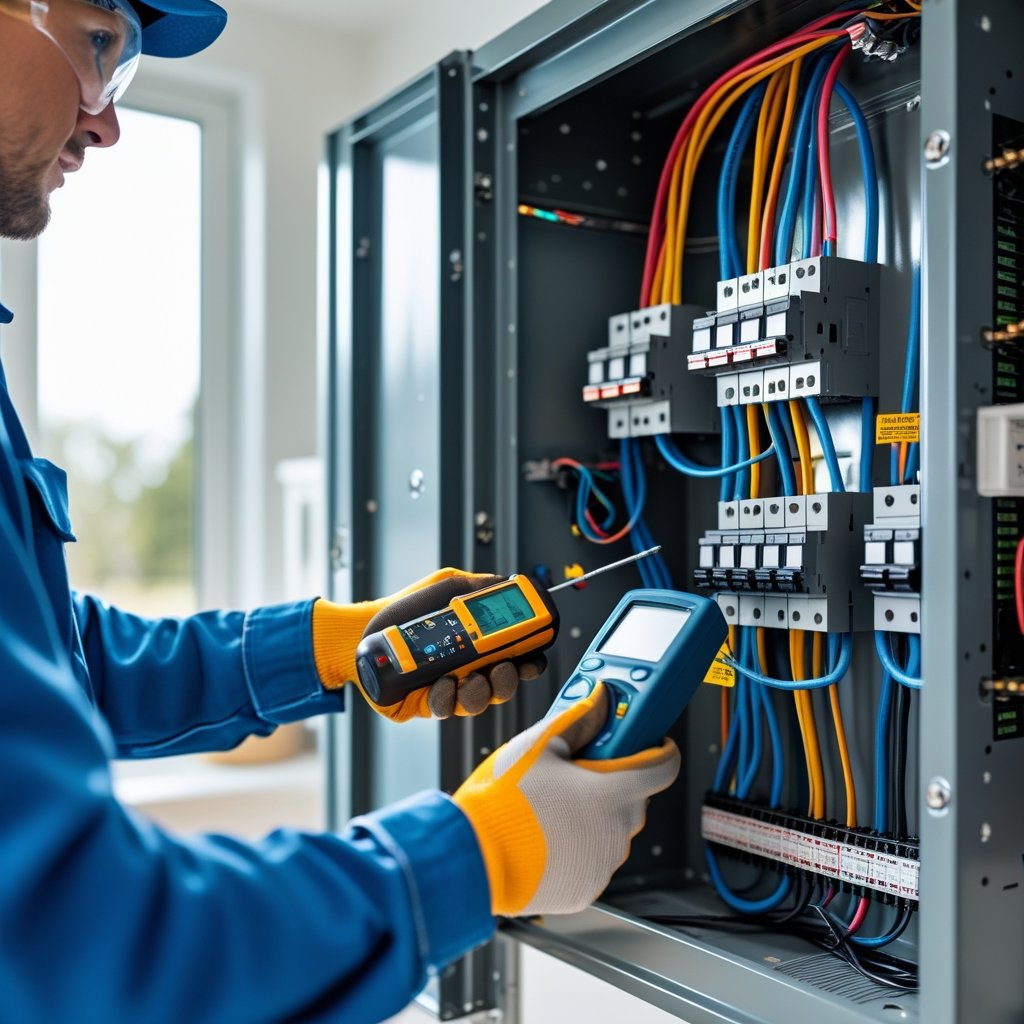Installing a gas boiler in your home is an important step to ensure reliable heating and hot water all year round. Proper gas boiler installation improves safety, efficiency, and long-term performance.
When done right, it can help you save on energy bills and avoid costly repairs later. If you live in Elizabethtown, Lancaster County, Mount Joy, York, or Hershey, you want a local company you can trust for this job.
Leo Kob Co., family-owned since 1904, offers honest pricing with no hidden fees. Their skilled technicians take care of your home like it was their own.
Understanding the installation process can help you feel confident about your new system. Choosing the right boiler and ensuring expert installation means your heating system will work smoothly and last longer.
From helping you pick efficient models to handling permits and connecting safely, professional service makes a big difference in comfort and peace of mind.
What Is Gas Boiler Installation?
Gas boiler installation means setting up a heating system in your home or business that uses natural gas to provide warmth and hot water. It involves choosing the right boiler type, safely connecting it to your gas supply, and making sure it works properly with your home's heating system.
This process requires careful planning because it affects your comfort, safety, and energy costs. You'll learn about the different types of boilers you might use and how these boilers heat your space.
Definition of Gas Boiler Installation
Gas boiler installation is the process of fitting a gas-powered heating system in a building. This includes placing the boiler unit, connecting it to the gas line, water pipes, and the power source.
Installers check the size of your home and heating needs to pick the right boiler. They also test the system to meet safety codes and manufacturer rules.
This step is very important if you live in areas like Elizabethtown, Lancaster County, or York, where cold winters make heating a must.
Types of Gas Boilers
There are mainly two types of gas boilers you might see for your home or business:
Combi Boilers: These boilers heat water instantly for both your heating and hot water needs. They don’t require a separate water tank, which saves space.
System Boilers: These need a water storage tank but handle high demand better, making them good for larger homes or buildings.
Each type has benefits depending on your home's size and water use. In Lancaster or Mount Joy, a combi boiler might work well in smaller homes, while system boilers could be better for bigger houses or commercial buildings.
How Gas Boilers Work
Gas boilers heat water by burning natural gas in a controlled chamber. This hot water then circulates through pipes and radiators to warm your rooms.
The boiler also supplies hot water for taps and showers. When your thermostat signals a need for heat, the boiler lights the gas burner.
Heat from this burner warms the water inside the boiler’s heat exchanger. A pump moves this hot water through your home’s pipes, keeping the temperature comfortable no matter the weather in York or Hershey.
Safety features like automatic shut-offs and pressure monitors protect you and your family during operation.
Benefits of Installing a Gas Boiler
Installing a gas boiler can improve how your home heats water and spaces efficiently. It offers practical advantages like lower energy use, saving money, and reducing the impact on the environment.
These benefits make it a strong choice for homeowners in South Central Pennsylvania.
Energy Efficiency Advantages
Gas boilers use natural gas to heat water quickly and send warmth through your pipes or radiators. Compared to electric models, gas boilers typically use less energy.
This means your home heats up faster without wasting fuel. Most modern gas boilers are designed to run efficiently for years with proper care.
You’ll use less gas for the same amount of heat, lowering your energy bills. Energy efficiency also means your boiler releases less heat into the surrounding area, making your home more comfortable overall.
Cost Savings Over Time
Running a gas boiler usually costs less than electric heating. Natural gas prices in areas like Elizabethtown and Hershey tend to be more stable, helping you plan your monthly budget better.
Though installation may have a higher upfront cost than some systems, you save money on fuel bills year after year. Regular maintenance from trusted local professionals ensures your boiler lasts longer, preventing costly repairs.
Here’s what to expect from your investment:
- Lower monthly heating bills
- Fewer breakdowns with proper service
- Eligibility for local rebates or tax credits that reduce your initial costs
Environmental Benefits
Gas boilers produce fewer carbon emissions than oil or electric-powered heating systems in many cases. Burning natural gas creates less pollution, which helps improve air quality around your home.
By choosing a gas boiler, you reduce your carbon footprint without sacrificing comfort. This is important in South Central Pennsylvania, where many communities focus on cleaner air.
You can also lower waste by maintaining your boiler well, extending its lifespan and avoiding premature replacements that strain resources.
Efficient gas boilers support a cleaner, greener home environment for years to come.
Preparing for Gas Boiler Installation
Before installing a gas boiler, check your home’s layout, pick the right boiler size, and understand local rules. This helps make sure your new boiler works well, is safe, and meets all legal requirements.
Assessing Your Property
Start by looking at where your current heating system is and how much space you have for a new boiler. Check if there is easy access to gas pipes and vents.
A compact location can save installation time and cost. Think about your home’s insulation and the number of rooms you want to heat.
In older homes in Lancaster or York, upgrades to pipework might be necessary. Also, consider if your home needs additional ventilation to meet safety standards.
A professional from South Central Pennsylvania can inspect your property. This prevents surprises during installation and keeps everything safe.
Selecting the Right Boiler Size
Choosing the right boiler size affects how well your home heats and how much energy you use. A boiler too small won’t keep your house warm.
Too large will waste energy and increase bills. You can estimate size by looking at your home’s square footage and number of people living there.
For homes in Elizabethtown or Mount Joy, a boiler between 30,000 to 60,000 BTUs might fit most needs. Your installer will calculate heat loss from walls and windows to help pick the best size.
Always choose a boiler with enough capacity for your home’s needs, not just the lowest price.
Necessary Permits and Regulations
In South Central Pennsylvania, gas boiler installation requires permits to meet town codes in places like Hershey and Lancaster. These rules ensure safe gas use and proper venting to avoid hazards.
Before installation, check with your local building department or ask your installer to get permits for you. Licenses show the work meets Pennsylvania’s safety standards.
You might also need inspections after installation. Following these steps helps keep your home safe and saves trouble when selling your property later.
Choosing a Qualified Installer
Choosing the right installer for your gas boiler affects how well it works and how long it lasts. You want someone with the right skills, proper credentials, and clear communication.
Making thoughtful choices now helps prevent problems later and keeps your home safe and comfortable.
Certifications to Look For
Look for installers with valid licenses and certifications approved in South Central Pennsylvania. Certified technicians have passed tests and met standards that show they understand safe, efficient gas boiler installation.
This includes local HVAC licenses and possible gas piping certifications. You want an installer who knows local building codes and energy rules for towns like Elizabethtown, Lancaster, York, and Hershey.
This ensures your system meets regulations and qualifies for rebates or incentives. A good installer will gladly share proof of certifications.
This means your investment is in skilled hands.
Questions to Ask Installers
Before hiring, ask about their experience with gas boilers in your area. Have they worked on systems like yours?
How do they handle permits and inspections? Ask about pricing upfront.
Will you get a clear estimate with no hidden fees? What warranty do they offer on workmanship and parts?
You can also inquire about maintenance and service plans. Will they be available for yearly tune-ups or emergency repairs?
Clear answers mean you can trust the installer and avoid surprises.
Importance of Professional Installation
Professional installation is vital for safety and efficiency. Gas boilers must be set up to prevent leaks, ensure proper venting, and avoid carbon monoxide risks.
A professional installer in towns like Mount Joy or Lancaster knows how to optimize the boiler for your home’s size and style. This helps reduce fuel costs and extends the boiler’s life.
Proper installation also keeps you eligible for manufacturer warranties and energy rebates. Taking shortcuts can cost more in the long run.
Hiring a skilled pro means your system will run reliably and safely for years.
The Gas Boiler Installation Process
Installing a gas boiler involves careful checks, removing old parts, and connecting new pipework. Each step ensures your system works safely and efficiently in your home.
Site Survey and Planning
Before installation, a technician visits your home in Lancaster or Mount Joy to inspect the current heating setup. They check the space where the boiler will sit, ensuring there’s enough room and proper ventilation.
The survey also includes looking at your home's gas supply and chimney or flue system. This helps decide the best boiler size and placement for your needs.
You’ll get a clear plan and cost estimate. This way, you know what to expect before work begins.
Planning helps prevent surprises and keeps the project on track.
Removing Old Equipment
Next, the old boiler and any outdated pipes need to be carefully taken out. The technician shuts off your gas and water to keep things safe.
Old units are disconnected, drained, and removed without damaging your walls or flooring. This step might take a few hours depending on how complex your current system is.
Removing older equipment also includes checking for any hidden issues like rust or leaks that could affect your new boiler.
Pipework and Connections
After removal, new pipes are fitted with care. The technician connects the boiler to your gas line, water supply, and heating system.
Proper sealing and secure fittings prevent leaks. Your technician checks every connection twice to ensure safety and functionality.
Electrical connections are installed to power the boiler’s controls. Once everything is connected, the system is tested for proper operation and efficiency.
This precise work helps your boiler run reliably, keeping your home warm through cold South Central Pennsylvania winters.
Setting Up Controls and Safety Features
When installing your gas boiler, focus on controls and safety features that keep your system running smoothly and protect your home. This includes setting up devices that help regulate temperature and detect potential hazards early on.
Thermostat Integration
Your thermostat controls the temperature and helps your boiler run efficiently. When installing a new gas boiler, connecting it properly to your thermostat is key.
Smart thermostats are a great option because they allow you to program heating schedules and adjust settings remotely. This can lead to energy savings and more comfort in your home.
Make sure the thermostat is compatible with your boiler’s controls. Your technician will test and calibrate the system to ensure your boiler responds correctly to temperature changes.
Proper integration means your heating system will cycle on and off at the right times. This prevents wasted energy and unnecessary wear on the boiler parts.
Leak Detection Systems
A gas leak can be dangerous, so installing a leak detection system during boiler setup is very important. These systems monitor your boiler and surrounding pipes for any gas escaping.
If a leak is detected, they trigger an alarm or shut off the gas supply automatically. In places like Elizabethtown and Lancaster County, where safety is a top concern, having a reliable leak detector adds peace of mind.
Your technician will install sensors in key areas and connect them to your boiler’s safety controls. This reduces the risk of accidents and protects your home from damage.
Regular testing ensures the leak detection system stays functional and ready to protect your family.
Testing and Commissioning Your New Boiler
After installation, your new gas boiler must be carefully checked for safety and performance. This includes running specific tests, setting controls, and making sure you understand how to use it properly.
These steps will help your boiler run smoothly for years in your home around Elizabethtown, Lancaster, or Hershey.
System Testing Procedures
The first step is checking all parts of your heating system. Your technician will look for gas leaks and test the burner operation.
They will measure the flue gases to confirm safe combustion. Water pressure and flow are also tested to ensure your boiler heats evenly.
The system is filled with water and tested for any leaks in pipes or connections. Your technician will cycle the boiler on and off several times.
This confirms the controls respond correctly, and safety devices work.
Initial Boiler Setup
After testing, the technician adjusts the boiler settings for your home. The technician programs the thermostat and controls for efficient heating.
They set the right water temperature and pressure. The technician fine-tunes the gas valve and ignition system to match local South Central Pennsylvania gas supplies.
This avoids wasted fuel and keeps running costs down. The technician calibrates your new boiler to match your heating system, whether you use radiators or underfloor heating.
Demonstration and Handover
Before finishing, the technician explains how to operate your boiler safely. They show you how to use the controls, adjust temperatures, and reset the system if needed.
You receive important paperwork, including your warranty and maintenance tips. The technician advises you on annual checks that help avoid costly repairs.
If you live in York, Mount Joy, or Lancaster County, this hands-on guidance helps you manage your new heating system with confidence.
Post-Installation Tips and Maintenance
After installation, regular care keeps your gas boiler running safely and efficiently. Proper maintenance prevents breakdowns, saves energy, and extends your system’s life.
Routine Maintenance Guidelines
Keep your boiler clean and check for leaks or unusual noises each month. Change or clean the air filter every 3 to 6 months if your system has one.
Make sure the area around the boiler stays clear of clutter or flammable materials. Check the pressure gauge regularly.
The ideal pressure is usually between 1 and 1.5 bar. If it’s too low, you may need to add water to the system.
Refer to your boiler manual or contact local experts in Lancaster County or Elizabethtown if you need help. Schedule annual inspections with a licensed technician to catch small issues early.
These inspections include checking the flue, controls, and safety devices. Keeping up with these tasks helps your boiler work reliably in York, Mount Joy, and Hershey homes.
Troubleshooting Common Issues
If your boiler won’t start, check that the thermostat is set correctly. A simple reset often fixes electronic controls.
Look for error codes on the display. Consult your manual or call your technician if you need help.
Leaks usually come from valves or pipe connections. Tighten small drips, but persistent leaks need a professional.
Low heating pressure or uneven heat in radiators may mean air is trapped in the system. Bleeding your radiators can help.
If you hear banging or gurgling noises, trapped air or scale build-up may be the cause. Bleed your radiators if needed, but schedule a professional service for other issues.
When to Schedule Servicing
Have a professional check your boiler once a year, ideally before the heating season starts in fall. This keeps your system ready for winter in South Central Pennsylvania towns like Lancaster and York.
Book immediate service if you smell gas, notice excessive noise, or if the pilot light goes out repeatedly. Ignoring these signs can lead to safety risks and higher costs.
Scheduling routine services with a trusted company gives you priority appointments and fair pricing. Regular check-ups help your boiler last longer and keep your home warm.
Upgrades and Smart Home Integration
Upgrading your gas boiler can make your heating system more efficient and easier to use. You can add smart controls that help save energy and fit your daily routine.
Planning ahead with future-proof features keeps your system reliable and ready for new technology.
Adding Smart Controls
Smart thermostats let you control your boiler from your phone or tablet. You can set heating schedules, adjust temperatures remotely, and track energy use.
This helps you lower heating costs without losing comfort. Some smart controls work with voice assistants like Amazon Alexa or Google Home.
You can change settings with simple voice commands. Installing these upgrades during your boiler setup in Lancaster, Elizabethtown, York, or Hershey makes it easy to use modern technology.
Future-Proofing Your Heating System
When upgrading, choose features that prepare your boiler for future improvements. For example, add a system compatible with renewable energy sources or upgrade pipework for easier maintenance.
Select a boiler that matches local energy codes in South Central Pennsylvania. Quality installation ensures your system runs smoothly for years and reduces the need for repairs in places like Mount Joy or Lancaster County.
Common Mistakes to Avoid
A common mistake is skipping the proper sizing of your gas boiler. If your boiler is too big or too small, it won’t heat your home efficiently.
This can cause higher energy bills and wear out parts faster. Another error is poor placement during installation.
Your boiler needs enough space for airflow and easy access for maintenance. Crowded spots can lead to overheating or make repairs harder.
Neglecting to inspect and clean key parts, like the heat exchanger and burner, reduces your boiler’s lifespan. Regular inspections help you avoid breakdowns and keep your system running smoothly.
Failing to check water pressure or gas pressure during installation can cause safety issues or poor performance. Keep these within the correct limits to protect your home and the boiler.
Not hiring a licensed professional familiar with South Central Pennsylvania’s codes can lead to costly mistakes. Proper permits and inspections in places like Elizabethtown, Lancaster, or York keep your system safe and legal.
Here’s a quick list to keep in mind:
MistakeWhy to Avoid Wrong boiler sizeWastes energy, shortens lifespanPoor placementLimits airflow, complicates maintenanceSkipping inspectionsIncreases risk of leaks and breakdownsIgnoring pressure checksSafety hazards, inefficient operationNot using local prosCode violations, possible legal issues
Avoiding these mistakes helps your gas boiler last longer.
Frequently Asked Questions
This section covers what you need to do before installation, how long it takes, and how to pick the right gas boiler for your home. It also answers safety questions, boiler lifespan, and how often you should have your boiler serviced.
What steps should I take to prepare my home for a new gas boiler installation?
Clear the area around your current boiler to give the technicians easy access.
Make sure any pets or children are kept safely away during installation.
You should also review your home’s gas supply to ensure it meets the new boiler’s needs.
How long does a typical gas boiler installation process take?
Most gas boiler installations in South Central PA take between one and two days.
This includes removing the old system, setting up the new boiler, and testing everything to make sure it runs smoothly.
Could you outline the major considerations for choosing the right gas boiler for my home?
Consider the size of your home and your typical heating needs.
Look for energy efficiency ratings to save on fuel costs over time.
Also, think about whether a combi boiler or a regular boiler fits your space and hot water use best.
Are there any safety concerns I should be aware of during the installation process?
Your installer should be fully licensed and insured to meet safety standards.
Proper ventilation must be ensured to prevent gas leaks or carbon monoxide issues.
Always ask your technicians to explain the safety checks they perform before using the system.
What is the expected lifespan of a newly installed gas boiler?
A well-maintained gas boiler usually lasts around 12 to 15 years.
Quality installation and regular service can help you get the most time from your boiler.
How often should my newly installed gas boiler be serviced to ensure it operates efficiently?
You should service your boiler once a year.
Regular checks help prevent breakdowns.
These checks also keep your energy costs low.

